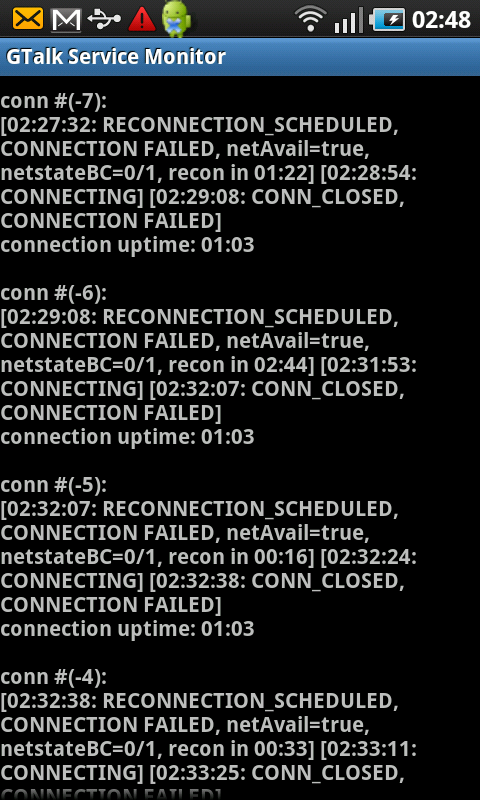Whether you’re a fledgling business or an established multinational, your brand reputation is massively important when it comes to both building and maintaining a customer base. A good reputation can boost sales to a certain degree and it’s always worth doing what you can to keep it positive. A bad reputation, on the other hand, can be disastrous and it’s every bit as important, if not more so, to keep abreast of any negative perceptions of your company or brand.

The ubiquitous, all-pervasive nature of the Internet makes the monitoring of your online reputation an essential task. It provides a platform for honest conversation, but also for gossip and outright lies so you’ll need to carefully monitor every aspect that pertains to your business. There are tools that help you do this but the multilingual, global nature of the World Wide Web means there’s even more to deal with.
Keep track of the online exchange with Google Alerts
The first thing to do is find out who’s talking about your business and their location. Google Alerts can be brilliant for tracking your mentions by simply entering keywords such as your business or product name. Google will then email you updates of the latest relevant search results, keeping you in the loop of when and where you are mentioned.
Remember Google isn’t the only search engine
You can change the language settings to monitor search results in various different languages, and other major search engines now offer similar services. Google is undoubtedly the single biggest search engine worldwide but in some territories, local competitors rule the roost.
In China, for example, Baidu has the greatest market share, while Seznam is the most regularly visited web portal and search engine inside the Czech Republic. Whether it’s worth focusing your efforts on search engines such as these will, of course, depend on how far you extend into those markets.
Board tracking services
There are also a number of services such as Board Tracker and Board Reader that specialise in searching message boards and forums for mentions of your keywords. Using these tools and inbuilt search functions in various social media sites should make it possible to monitor what people are saying about you and where they tend to say it.
Use translation tools to understand what’s being said…
It’s one thing to find a mention of your business. It’s another thing understanding what’s being said about it if that mention happens to be in a language you either don’t speak fluently or don’t speak at all. In such cases automatic translation tools such as Yahoo! Babel Fish are perfect for getting a sense of what’s being said. Simply cut and paste the relevant text into the translation window.
Use native speakers to respond
You should, however, keep in mind the fact that automatic translation tools are not infallible. They can be prone to making contextual, factual and grammatical mistakes. This in turn can make you look amateurish and unprofessional – hardly the image you want to convey when considering your online reputation.
Responding to comments, both positive and negative, can be helpful but when doing so in another language you should enlist the help of a native speaking translator wherever possible. This will not only help avoid technical linguistic errors but will also prevent any cultural faux pas.
RepVine and other reference tools
Personal branding sites such as RepVine allow you to collate and display a collection of references about yourself and your business. References, especially from trusted sources, can be a great way of building your reputation and trustworthiness. As the folks at RepVine say:
References do not equal reputations, but they make up an integral piece of them.
There are many other reputation management tools available online. Some allow you to collect your various online profiles into a single ID or ‘landing’ page, while others provide ways to verify your online identity – an important aspect when it comes to engendering trust online.
Use online reviews to your advantage
The Internet teems with reviews of every conceivable product and service and many people are not only swayed by what they read online but will actively seek out reviews when considering a purchase. One way to encourage reviews is to offer incentives such as discount vouchers to customers who participate.
You should create a level playing field, however, and reward everyone who participates, even if their review is negative. Offering what looks like a bribe for positive feedback only is a tactic that can backfire and affect people’s view of you in a way worse than the odd bad review.
Dealing with negative publicity
Whether they occur in a review, on a message board, in a blog or any other platform, it’s a fact of life that you will at some point have to deal with negative comments. A thick skin is important but so is a clear head when it comes to your response.
If there is a single negative response amidst a hundred positive ones, you may consider the best course of action is to simply leave it and let the weight of consensus speak for itself.
Alternatively, you may wish to leave your own response as a counter. This is perfectly acceptable but you should always do so in a polite and measured manner. Even if you think someone has been grossly unfair or factually incorrect, don’t go on the counter-attack or instigate an online flame war. Point out where you think a comment is demonstrably wrong and acknowledge fair criticism by detailing what steps you have taken or will be taking to rectify any issues.
As previously mentioned, responses in a foreign language should always be made with the aid of a native speaker, if possible.
Managing your reputation online is all about getting your message across. When doing so across different languages, it can be doubly difficult, but given the global reach of the web, monitoring your online reputation can be essential for your business or brand.
About the author
Christian Arno is the founder of Lingo24, one of the world’s top translation companies. Launched in the UK in 2001, Lingo24 now spans three continents and has clients in more than sixty countries around the globe. Lingo24’s works with more than 4,000 hand-picked in-country translators, who have more than three years professional experience and ensure 24-hour coverage. Follow Christian (@l24ca) and Lingo24 (@Lingo24) on Twitter.


Comments
One response to “8 Tips for Monitoring Online Reputation across Different Languages”